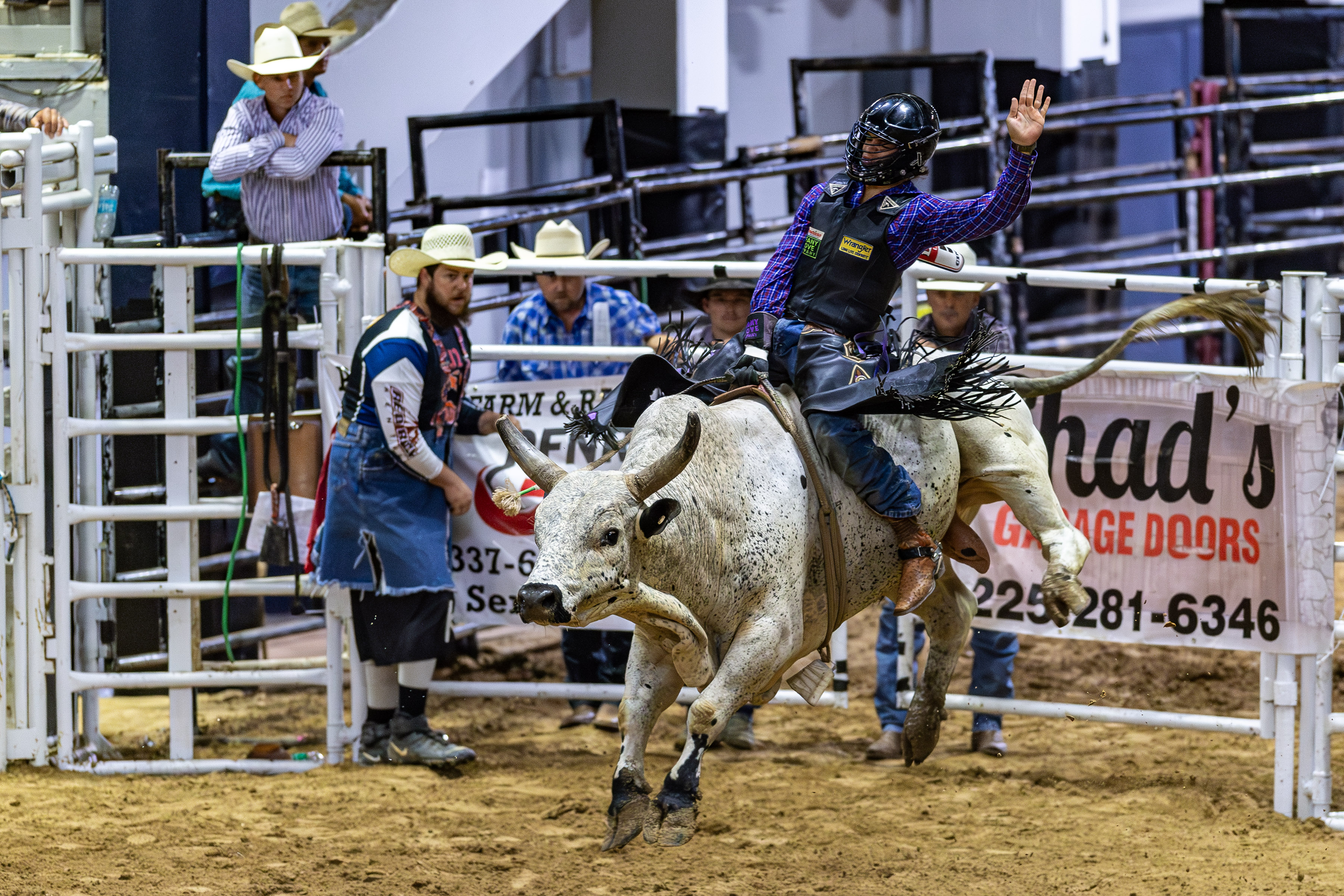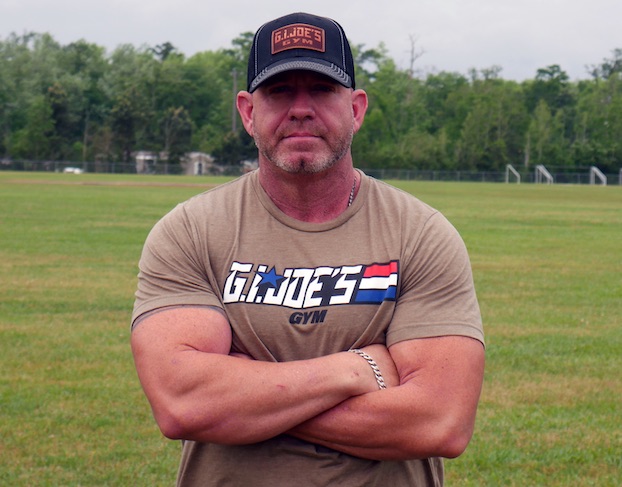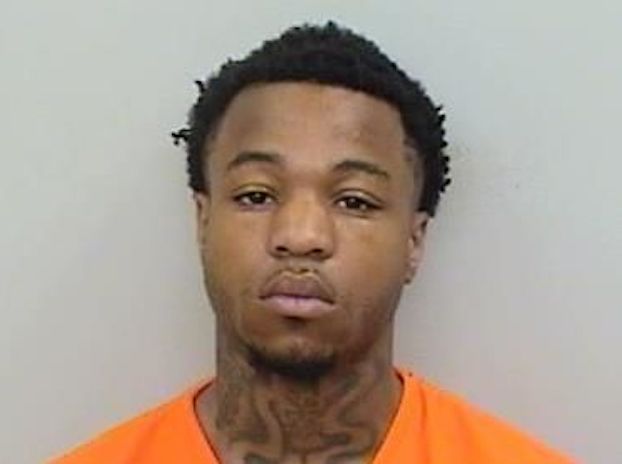12.Talk.Civil Air Patrol
Published 5:00 am Sunday, May 12, 2019
By Crystal Stevenson
cstevenson@americanpress.com
For Lt. Col. Joseph T. “Joe” DePaolo, Civil Air Patrol is home.
“I joined the Civil Air Patrol as a cadet in 1951 when I was in high school,” he said. “My family wanted me in railroad training — my grandfather and uncle for many years did it — but in the summer of 1950 I got bit by the airplane bug.”
DePaolo said one of his high school classmates encouraged him to join the cadet organization, which only fueled his passion even more.
“He told me I could get a military background and go flying and I said, ‘Really?,’ so I joined,” he said. “My first uniform in the Civil Air Patrol was brown khakis and brown shoes, that’s how long ago it was. We were a little late catching up with the blues like the Air Force did — dress blues and shiny shoes.”
Upon his graduation in 1954, DePaolo enrolled in the aircraft maintenance machinery program at the Academy of Aeronautics near LaGuardia Airport but joined the Air Force before he finished his studies.
“The Air Force recruiter in Queens, N.Y., sent all my paperwork to tech training, and I was in basic training for two weeks when I got a letter saying I was eligible for aviation cadet training,” he said. “I took the pilot training and nearly killed my instructor two or three times and he said, ‘Joe, you need to find something else to do.’ ”
On the advice of his late friend, Johnny Paper, he switched to the Air Force’s air traffic control school to become a control tower operator.
“Johnny said, ‘Everything that happens at an airport, the control tower knows about it.’ That sounded good to me so I was off to Biloxi for air traffic school and my first assignment afterward was Mitchell Air Base in Long Island, N.Y.,” he said.
DePaolo said not long after he arrived, staff received word that troops were needed further out on the island at the Suffolk County Air Force Base.
“That’s where they housed the interceptor aircraft because the Russians were coming,” he said. “We had three squadrons of interceptors out there so I went to the control tower there in the beginning of 1957 and I stayed there a bit.”
DePaolo served in the Air Force for four years before accepting a position with the Federal Aviation Administration at John F. Kennedy International Airport in 1961.
“We had an apartment and the third time the apartment was robbed and ransacked, they took everything — TVs, all the jewelry, the kids’ clothes, everything. The police said they used the escape ladder outside of the kitchen window and said you’ll never find them,” he said. “My wife said, ‘Let’s get out of the city.’ ”
They moved to Suffolk County, N.Y., and he took a job at Long Island MacArthur Airport.
“I worked the control tower there for six years and then I had a chance to go to a bigger tower in West Chester County in White Plains and I took it and served there three years,” he said. “When I was in West Chester I was full-performance-level tower and radar. We had five or six of us in the control tower and if it got busy someone would jump in and help me — one would keep track of the aircraft coming, one would keep track of another one going. We had a radio and a telephone, that was it. But I liked it.”
His job ultimately took him to Pennsylvania, West Virginia, New Jersey and eventually DeRidder in 1984.
“The FAA decided they were going to computerize all flight service stations in Louisiana. There were seven small little airports and they decided they were going to close them all up and were going to build one and DeRidder won the contract,” he said. “We handled the whole state of Louisiana and offshore going to the oil and rigs. They wanted to know all the aircraft that was coming and going and we kept track of all of that.”
He also took part in designing disaster training protocol, “some of which they still use to this day and used during in Hurricane Katrina.”
DePaolo said DeRidder was his final assignment with the FAA before retiring in 1997 with 41 years of service.
“By 1998, my wife said, ‘Joe, you’ve got to find yourself something to do. You’re driving me crazy around the house,’ ” he said. “I went to the police academy at 62 and I joined the DeRidder force as an officer and worked patrol for six years. I would have stayed longer, but my wife was in bad health and wheel chair-bound and I just couldn’t leave her.”
Throughout his career and the many states he’s lived in, the one thing that remained constant was the Civil Air Patrol.
“The Civil Air Patrol is a very big part of my life,” he said. “I refuse to give it up.”
The CAP is a congressionally chartered, federally supported non-profit corporation that serves as the official civilian auxiliary of the Air Force. It’s a volunteer organization with aviation-minded membership.
“It was formed at the beginning of World War II because there were a lot of private pilots with private aircraft who wanted to do their part,” he said. “They wound up doing a lot of submarine patrol off the Gulf and the East Coast. Some of them did carry mines to drop to try and get ahold of a sub that way but most just recorded them to the Coast Guard and then the Coast Guard went out to get them.”
He said the CAP has three main missions: disaster relief, aerospace education and the cadet program.
DePaolo, who serves as the public affairs officer for the Lake Charles Squadron, said the local CAP helped with search and rescue during Hurricane Harvey and also took aerial photos of the flooding to send to the FEMA office in Houston.
“The cadet program is what I love,” he said. “The kids are 13 to 18 years of age, and we have 27 cadets in our program right now.”
He said cadets are taught a myriad of skills and life lessons, from how to read a map to how to motivate and lead a team while accomplishing difficult goals.
DePaolo, 83, was recently recognized for his 50-plus years of membership in the CAP.
He said the lessons learned in the cadet program will stay with a person long after they leave the program.
“It taught me good citizenship and responsibility,” he said. “It prepared me for life.”
l
Online: www.lawgcap.org





